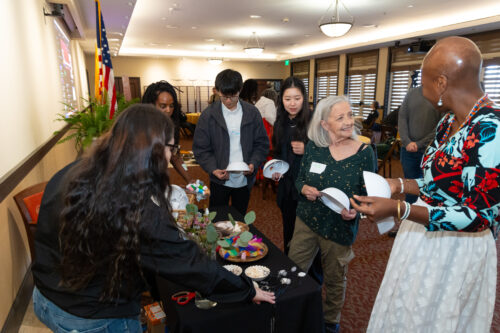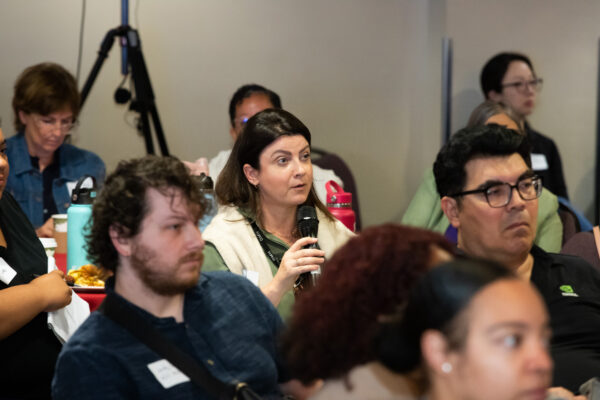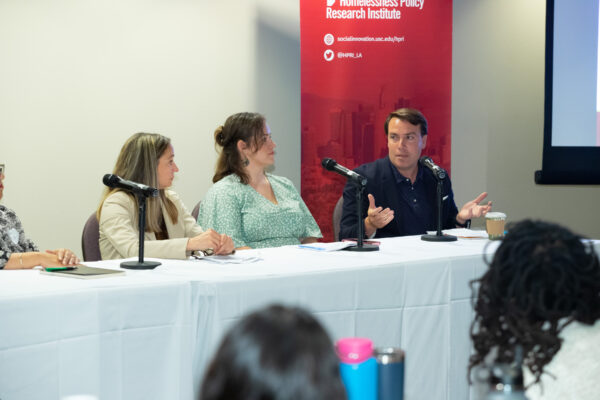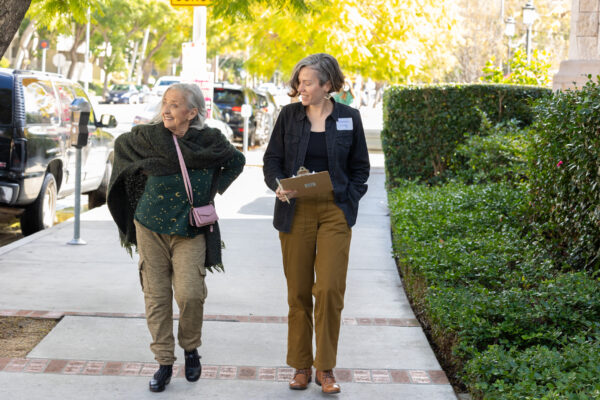
About HPRI
ABOUT THE HOMELESSNESS POLICY RESEARCH INSTITUTE
Established with support from the Conrad N. Hilton Foundation and the Home For Good Funders Collaborative, the Homelessness Policy Research Institute (HPRI) is a collaborative of over one hundred researchers, policymakers, service providers, and experts with lived experience of homelessness that accelerate equitable and culturally informed solutions to homelessness in Los Angeles County by advancing knowledge and fostering transformational partnerships between research, policy and practice.
HPRI focuses on three primary activities:
Conduct and Facilitate High Impact Research
HPRI conducts and facilitates high-impact, collaborative research to help end homelessness in Los Angeles County.
Gather and Translate Research
HPRI supports providers and policymakers by assembling and translating research on evidence-based approaches to ending homelessness, including how they have been transformed into practice.
Convene and Engage Stakeholders
HPRI convenes policy makers, researchers, people with lived experience and culturally-specific organizations to support research to end homelessness in Los Angeles County.
Our Values

- HPRI is dedicated to collaborative research that has a positive impact on homelessness in Los Angeles.
- Communication among homelessness researchers is transparent and proactive.
Research is relevant, dynamic, actionable, and can be applied in different policy contexts. - Research is scientifically rigorous research and uses tools that fit rapid cycle learning.
- Partnerships consist of mutual trust, coordination, and collaboration, not competition.
- We are dedicated to maximizing potential for innovation and work that extends beyond the incremental stages of support.
- Infuse equity and cultural humility into all aspects of HPRI research, conversations and convenings.
- Uplift collaboration both between researchers from different backgrounds and institutions and from the research community to the policy and practice communities.




